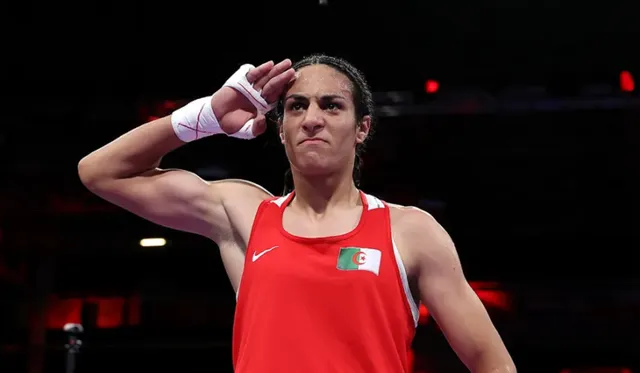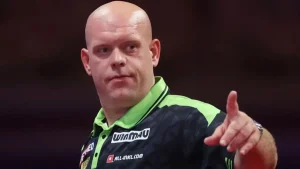Olympic champion Imane Khelif must undergo genetic sex screening in order to participate in upcoming events, World Boxing said as it introduced mandatory gender testing for all boxers in its competitions.
The Algerian will be banned from all World Boxing competitions until the pugilist undergoes newly mandated genetic sex testing.
The sport governing body announced the new policy on Friday and specifically mentioned Khelif, who won the women’s welterweight gold at the Paris Olympics last year, triggering a gender-eligibility controversy.
“Imane Khelif may not participate in the female category at … any World Boxing event until Imane Khelif undergoes genetic sex screening in accordance with World Boxing’s rules and testing procedures,” the organisation said in a statement.
“World Boxing has written to the Algerian Boxing Federation to inform it that Imane Khelif will not be allowed to participate in the female category at the Eindhoven Box Cup or any World Boxing event until Imane Khelif undergoes sex testing,” it added.
World Boxing is responsible for organising bouts at the 2028 Los Angeles Olympics, after being granted provisional recognition by the International Olympic Committee.
The 26-year-old is chasing a second gold medal at the LA28 after her triumph in Paris.
“The introduction of mandatory testing will be part of a new policy on sex, age and weight to ensure the safety of all participants and deliver a competitive level playing field for men and women”, the sport governing body added in the statement.
“World Boxing respects the dignity of all individuals and its overriding priority is to ensure safety and competitive fairness to all athletes.
“To do this, it is essential that strict categories determined by sex are maintained and enforced, and means that World Boxing will only operate competitions for athletes categorised as male or female.”
The mandatory gender testing rule
Under the new policy, all athletes above the age of 18 who want to participate in a World Boxing-owned or sanctioned competition will need to undergo a PCR, or polymerase chain reaction genetic test, to determine what sex they were at birth and their eligibility to compete.
The PCR test is a laboratory technique used to detect specific genetic material, in this case the SRY gene, that reveals the presence of the Y chromosome, which is an indicator of biological sex.
The test can be conducted by a nasal or mouth swab, or by taking a sample of saliva or blood.
If an athlete intending to compete in the women’s categories is determined to have male chromosomal material, “initial screenings will be referred to independent clinical specialists for genetic screening, hormonal profiles, anatomical examination or other valuation of endocrine profiles by medical specialists,” World Boxing wrote. The policy also includes an appeals process.
National federations will be responsible for testing and will be required to confirm the sex of their athletes when entering them into World Boxing competitions by producing certification of their chromosomal sex, as determined by a PCR test.
Also Read: Imane Khelif Found Fraud For Faking Identity
Imane Khelif’s gender controversy
Khelif had competed in women’s boxing events under the IBA’s banner without controversy until the 2023 world championships. She had never won a major international competition before her dominant performance in the women’s welterweight division in Paris.
The boxer came under intense scrutiny over misconceptions about gender, fueled by claims from the International Boxing Association, which has been permanently banned from the Olympics, that Khelif failed unspecified eligibility tests for the women’s competition at last year’s world championships.
The IOC ran the past two Olympic boxing tournaments after the banishment of the IBA for decades of misdeeds and controversy, and it applied the sex eligibility rules used in previous Olympics. Khelif was eligible to compete under those standards.
Khelif intends to return to international competition next month in Eindhoven as part of her plan to defend her gold medal at the Los Angeles Olympics, but some boxers and their federations had already spoken out to protest her inclusion.
















